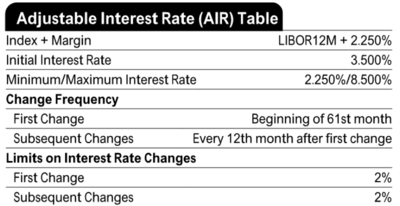Nevertheless, your heirs do have a couple of options. They can settle the debt you owe by buying the home for the amount owed or for 95% of the appraised worth whichever is less. This can be done by paying on their own or refinancing the loan into a regular home mortgage. reverse mortgages how do they work.
If the house sells for more than it's worth, they can keep the staying money. If it costs less than what's owed, they will not need to pay the difference. Finally, they can allow the home to go into foreclosure. The choice your beneficiaries make will normally depend on how much equity remains in the home.
A reverse home mortgage is a mortgage that you do not have to repay for as long as you reside in your house. It can be paid to you in one lump amount, as a regular month-to-month earnings, or at the times and in the amounts you desire. The loan and interest are paid back only when you offer your home, permanently move away, or die.
They are repaid completely when the last living borrower dies, sells the house, or permanently moves away. Due to the fact that you make no month-to-month payments, the quantity you owe grows bigger in time. By law, you can never ever owe more than your house's worth at the time the loan is paid back.
If you stop working to pay these, the lender can utilize the loan to pay or need you to pay the loan completely. All house owners should be at least 62 years old. A minimum of one owner should live in your house the majority of the year. Single household, one-unit dwelling.
Some condos, planned unit advancements or manufactured houses. NOTE: Cooperatives and the majority of mobile houses are not qualified. Reverse home loans can be paid to you: All at when in cash As a month-to-month earnings As a credit line that lets you choose how much you desire and when In any combination of the above The amount you get typically depends upon your age, your house's worth and place, and the expense of the loan.
The majority of people get the most cash from the House Equity Conversion Home Loan (HECM), a federally insured program. Loans offered by some states and city governments are often for specific purposes, such as paying for house repair work or real estate tax. These are the most affordable cost reverse home mortgages. Loans offered by some banks and home loan companies can be utilized for any purpose.
Some Known Questions About How Do Reverse Mortgages Work After Death.

HECM loans are usually the least pricey reverse mortgage you can obtain from a bank or home loan business, and in most cases are significantly less expensive than other reverse home mortgages. Reverse home loans are most expensive in the early years of the loan and typically become less costly gradually.

The federal government needs you to see a federally-approved reverse mortgage therapist as part of getting a HECM reverse mortgage. For more information about Reverse Mortgages, go to AARP: Comprehending Reverse Mortgages. how do jumbo mortgages work.
Marketer Disclosure Numerous or all of the products featured here are from our partners who compensate us. This may affect which products we discuss and where and how the product appears on a page. Nevertheless, this does not affect our examinations. Our viewpoints are our own. After retirement, without routine income, you might often have problem with finances.
A reverse home mortgage is a mortgage that permits homeowners 62 and older to withdraw some of their house equity and convert it into cash. You do not have to pay taxes on the proceeds or make monthly home loan payments. You can use reverse home loan proceeds however you like (how do fixed rate mortgages work). They're often earmarked for expenses such as: Financial obligation combination Living expenses Home improvements Helping kids with college Purchasing another house that may better fulfill your requirements as you age A reverse home mortgage is the reverse of a conventional mortgage; rather of paying a lender a monthly payment each month, the lending institution pays you.
The amount you get in a reverse home loan is based upon a moving scale of life span. The older you are, the more house equity you can take out. The Federal Housing Administration guarantees 2 reverse home mortgage types: adjustable-rate and a fixed-rate. Fixed-rate reverse home mortgages include a one-time lump sum payment.
Adjustables have five payment choices: Set monthly payments so long as you or your qualified spouse remain in the house Set monthly payments for a set duration Unspecified payments when you need them, up until you have actually exhausted your funds A line of credit and set month-to-month payments for as long as you or your eligible partner reside in the house A line of credit and set monthly payments for a set duration of your selecting To look for a reverse home mortgage, you need to fulfill the following FHA requirements: You're 62 or older You and/or an eligible spouse who need to be called as such on the loan even if he or she is not a co-borrower live in the home as your primary home You have no delinquent federal financial obligations You own your house outright or have a substantial quantity of equity in it You go to the necessary therapy session with a home equity conversion mortgages (HECM) counselor approved by the Department of Housing and Urban Advancement Your house meets all FHA property requirements and flood requirements You continue paying all real estate tax, house owners insurance and other household upkeep fees as long as you reside in the home Prior to providing a reverse home loan, a loan provider will check your credit rating, verify your monthly earnings versus your monthly financial commitments and buy an appraisal on your house.
Nearly all reverse home loans are provided as house equity conversion home mortgages (HECMs), which are insured by the Federal Real Estate Administration. HECMs come with strict loaning guidelines and a loan limitation. If you think a reverse home mortgage may be best for you, find an HECM therapist or call 800-569-4287 toll-free to find out more about this funding option.
Not known Facts About How Do Va Mortgages Work
A reverse mortgage is a mortgage made by a home loan lender to a property owner using the house as security or collateral. Which is significantly different than with a conventional home loan, where the property owner http://zanderqvjf802.fotosdefrases.com/getting-my-how-d-mortgages-work-to-work uses their earnings to pay for the financial obligation over time. However, with a reverse home mortgage, the loan amount (loan balance) grows with time since the property owner is not making month-to-month home mortgage payments.
The quantity of equity you can access with a reverse home loan is figured out by the age of the youngest borrower, current rates of interest, and value of the house in concern. Please keep in mind that you may require to reserve additional funds from the loan proceeds to spend for taxes and insurance.
They wish to redesign their kitchen area. They have heard about reverse mortgage loans however didn't know the details. They decide to call a reverse mortgage consultant to discuss their present needs and future objectives if they could acquire access to a portion of the funds kept in their home's equity.